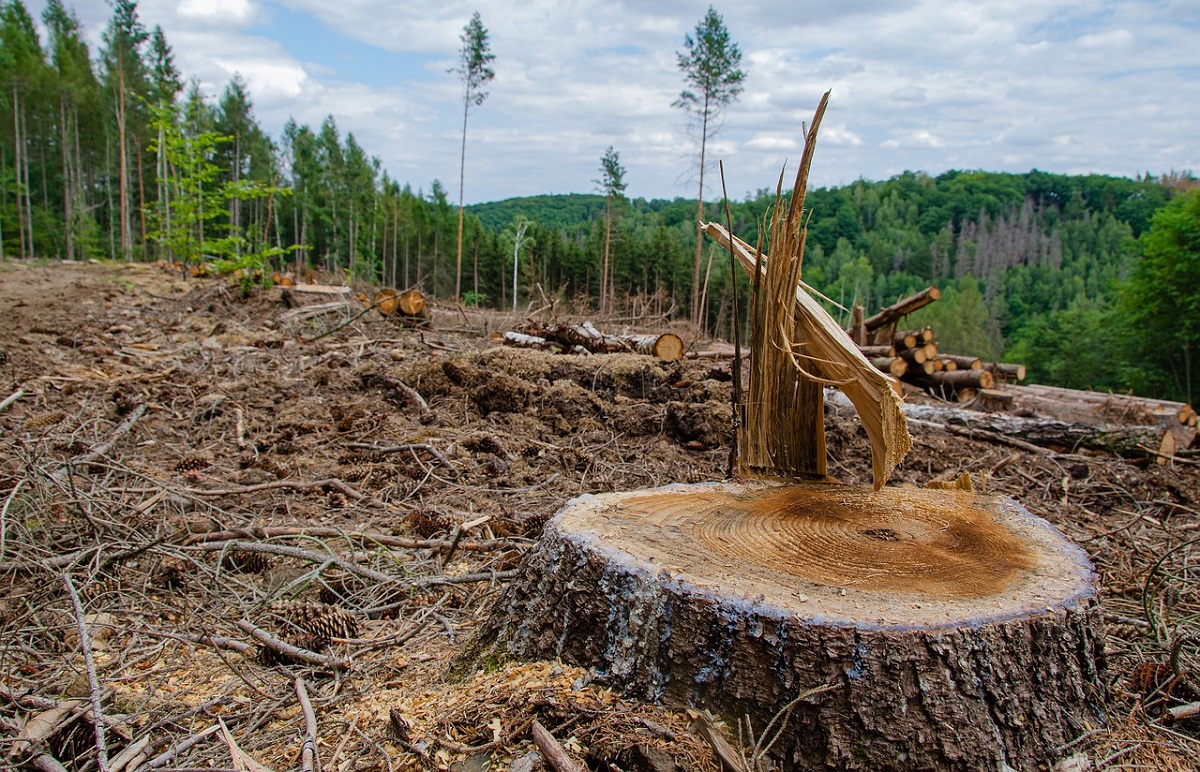The Devastating Effects of Deforestation on Climate Change

Forests are the lungs of our planet, playing a crucial role in regulating the Earth’s climate and supporting biodiversity. However, the alarming rate of deforestation has become a significant threat to the environment, contributing to the escalating effects of climate change. This article delves into the intricate relationship between deforestation and climate change, exploring the devastating consequences of this environmental crisis and potential solutions to mitigate its impact.
As we embark on this journey of understanding, it’s essential to acknowledge the significance of sustainable practices. For those seeking inspiration, The Greener Wanderer’s Guide: Embracing Sustainable Adventures Worldwide offers valuable insights into eco-friendly travel. Additionally, The Best Zero Waste Grocery Stores Near You: A Comprehensive Guide and Comparison and The Best Eco-Friendly Cleaning Products for Sensitive Skin: A Comprehensive Guide provide practical tips for adopting a more sustainable lifestyle.
The Role of Forests in Climate Regulation
Forests act as natural carbon sinks, absorbing and storing vast amounts of carbon dioxide (CO2) from the atmosphere through photosynthesis. This process helps mitigate the greenhouse effect, which is a primary driver of climate change. However, when forests are cleared or burned, the stored carbon is released back into the atmosphere, exacerbating the accumulation of greenhouse gases.
According to the Food and Agriculture Organization of the United Nations (FAO), deforestation is responsible for approximately 12% of global greenhouse gas emissions, making it a significant contributor to climate change. The loss of these vital carbon sinks reduces the Earth’s capacity to regulate atmospheric CO2 levels, further amplifying the warming effect.
Read Also: Unleashing Nature’s Magic: The Incredible Benefits of Composting Food Scraps and Reducing Waste
Impacts of Deforestation on Climate Change
The effects of deforestation on climate change are far-reaching and multifaceted. Here are some of the primary impacts:
-
Increased Greenhouse Gas Emissions: As mentioned earlier, the burning and decomposition of cleared forests release vast amounts of stored carbon into the atmosphere, contributing to the rise of greenhouse gas levels.
-
Loss of Carbon Sinks: Forests act as natural carbon sinks, absorbing and storing atmospheric CO2. Deforestation diminishes the Earth’s capacity to regulate carbon levels, further exacerbating climate change.
-
Disruption of Local and Global Weather Patterns: Forests play a crucial role in regulating local and global weather patterns through evapotranspiration and their influence on precipitation cycles. Deforestation can lead to changes in temperature, rainfall patterns, and the frequency of extreme weather events.
-
Biodiversity Loss: Forests are home to a vast array of plant and animal species. Deforestation leads to habitat loss and fragmentation, endangering numerous species and disrupting delicate ecological balances.
-
Soil Erosion and Desertification: The removal of forests can lead to soil erosion, degradation, and desertification, further exacerbating the impacts of climate change on ecosystems and agriculture.
Read Also: The Ultimate Guide to Upcycled Crafts for Adults: Unleash Your Creativity and Sustainability
Comparison of Deforestation Rates and Impacts
To better understand the magnitude of the problem, let’s compare the deforestation rates and impacts across different regions:
| Region | Deforestation Rate (hectares/year) | Primary Impacts |
|---|---|---|
| Amazon Rainforest | 1.5 million | Loss of biodiversity, disruption of water cycles, increased CO2 emissions |
| Southeast Asia | 1.2 million | Habitat loss, soil erosion, decreased air quality |
| Sub-Saharan Africa | 1 million | Desertification, loss of arable land, displacement of communities |
| Russia and Eastern Europe | 0.5 million | Disruption of boreal forests, loss of carbon sinks |
The data highlights the alarming rate of deforestation globally and the devastating consequences it has on ecosystems, biodiversity, and climate regulation. Addressing this issue requires a concerted effort from governments, organizations, and individuals alike.
Potential Solutions and Mitigation Strategies
While the challenges posed by deforestation and climate change are daunting, there are potential solutions and mitigation strategies that can be implemented:
-
Sustainable Forest Management: Adopting sustainable forestry practices, such as selective logging, reforestation, and agroforestry, can help maintain the ecological balance and preserve carbon sinks.
-
Protected Areas and Conservation Efforts: Establishing and enforcing protected areas, national parks, and wildlife sanctuaries can safeguard remaining forests and biodiversity hotspots.
-
Reducing Demand for Unsustainable Products: Consumers can make conscious choices to reduce the demand for products derived from unsustainable practices, such as palm oil, illegal timber, and unsustainable agriculture.
-
Promoting Renewable Energy and Sustainable Agriculture: Transitioning to renewable energy sources and implementing sustainable agricultural practices can reduce the pressure on forests for land clearance and fuelwood.
-
International Collaboration and Policy Reforms: Addressing deforestation and climate change requires global cooperation, policy reforms, and financial incentives to support sustainable forest management and conservation efforts.
By embracing these solutions and mitigation strategies, we can work towards preserving our forests, mitigating the effects of climate change, and securing a more sustainable future for our planet.
Read Also: Unleashing Nature’s Magic: The Incredible Benefits of Composting Food Scraps and Reducing Waste
Conclusion
The effects of deforestation on climate change are undeniable and far-reaching. As forests continue to disappear at an alarming rate, the consequences for our planet’s delicate ecosystems and climate stability become increasingly severe. It is imperative that we take immediate action to address this pressing issue through sustainable practices, conservation efforts, and global cooperation.
By recognizing the vital role forests play in regulating the Earth’s climate and supporting biodiversity, we can work towards preserving these invaluable natural resources. Embracing sustainable lifestyles, such as those outlined in The Greener Wanderer’s Guide: Embracing Sustainable Adventures Worldwide, The Best Zero Waste Grocery Stores Near You: A Comprehensive Guide and Comparison, and The Best Eco-Friendly Cleaning Products for Sensitive Skin: A Comprehensive Guide, can contribute to a more sustainable future for our planet.
Remember, every small step towards reducing our carbon footprint and preserving our forests makes a difference. Together, we can mitigate the effects of deforestation on climate change and pave the way for a greener, more sustainable world.

